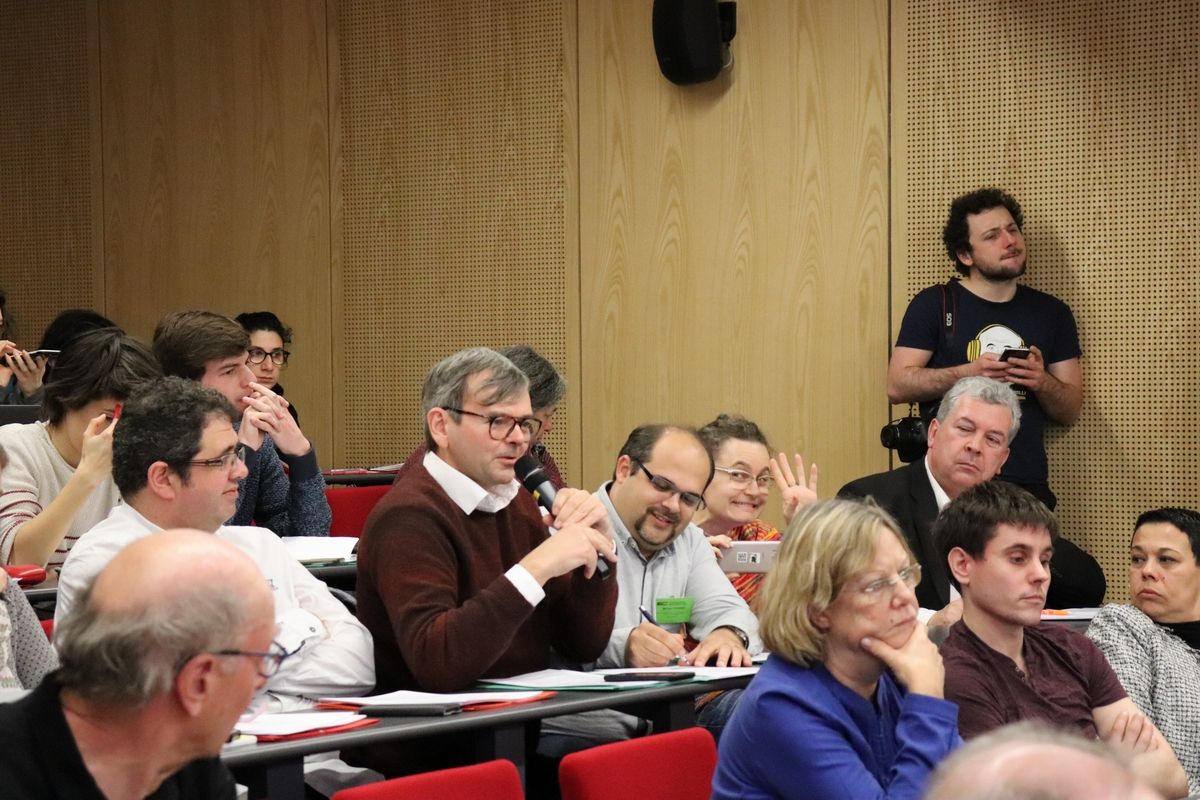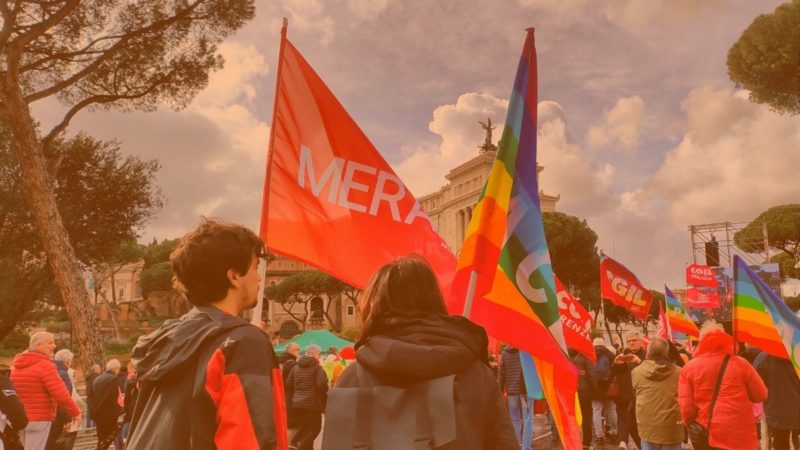Recently, DSC Lyon 1 was invited to participate in a seminar hosted by the Union of European Federalists, with this enticing title. “How can political parties respond to the increasing need for a public debate on the European project ? What could be their role in the creation of European civil society ? How should they organise themselves on the European level ?” Clearly, this was an event where we had important things to contribute !
The UEF itself is a benign organisation, with aims which are broadly compatible with those of DiEM25 on the institutional level. Its membership is all over the political spectrum, from DiEM25 to centre right. But in practice, it seems to be quite closely aligned with the existing institutions.
So perhaps unsurprisingly, the panel was dominated by representatives of groups represented in the UE parliament : European People’s Party (EPP), Socialists and Democrats (S&D), Liberals (ALDE), Greens. The contributions of each panelist underlined the fact that these “european parties” are, in general, nothing more than federations of national parties, often lacking in ideological coherence (the EPP representative, Françoise Grossetête, amusingly defended the membership of Fidesz in her group, saying that when a family member misbehaves, you don’t throw them out, you try to help them !) The representative of the European Green Party, Gwendoline Delbos-Corfield, described in detail how increasingly difficult it is to get member parties to align on policy matters on the European level.
Jo Leinen (SPD/S&D) ruefully admitted that the EU is still far from having defined a status for true transnational European parties. I spoke up on this issue, having been involved in the thorny question of defining statutes for DiEM25 in France ; as all of you who have worked on the question in your own country will realise, there is no legal definition on the European level that we can attach ourselves to, unless we have members which are existing national political parties. The rules attached to registering a European political party are designed to maintain a closed club : it is explicitly stated that such a party is a “political alliance” of parties already represented at a national or regional level. All of this flies in the face of the professed objective of fostering European citizenship and political involvement… But we already knew that !
Jacques Terrenoire spoke for DiEM25, outlining our inherently transnational approach and our objectives of radical institutional reform. This was generally very well received, in particular by the representative from Macron’s party, En Marche (we refrained from speaking of our political program, that would have spoiled the concensus !)
It was a successful outing for DiEM25, raising our political profile. It also provided the occasion to meet members of Benoît Hamon’s “Generation.s” movement who were present at the event, and to confirm with pleasure that we are indeed on the same political line !
Alistair Connor and Jacques Terrenoire are members of DSC Lyon1
Do you want to be informed of DiEM25's actions? Sign up here




